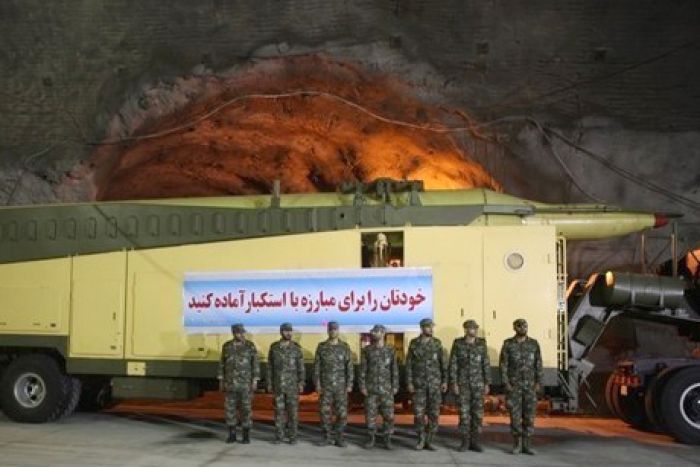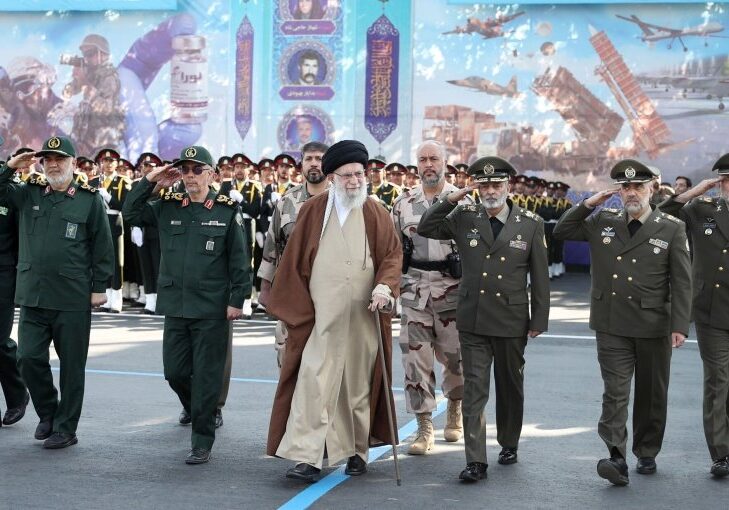Australia/Israel Review
Adopting Out
Nov 4, 2015 | Michael Makovsky

Michael Makovsky
Sunday, October 18, wasn’t just a day of baseball playoffs and football games. It was “Adoption Day,” when all parties to the Iran nuclear deal must have begun preparing to implement its terms. And while the Obama Administration took another opportunity to pat itself on the back for its achievement, Iran has offered the international community a clear signal of what it thinks about its obligations under the deal, as well as its strategic intentions. Just a week before Adoption Day, Iran test-fired a new precision-guided ballistic missile capable of delivering a 1,600-pound warhead to Israel or even southeastern Europe and designed to evade missile defence systems.
Legally, this launch was an indisputable violation of UN Security Council Resolution 1929, passed in 2010, which dictates, “Iran shall not undertake any activity related to ballistic missiles capable of delivering nuclear weapons, including launches using ballistic missile technology.”
The Obama Administration apparently found some wiggle room in the last five words of the UNSC injunction. Initially, White House press secretary Josh Earnest would only hazard that there are “strong indications” Iran violated the measure. Later, UN Ambassador Samantha Power was prepared to make a more definitive legal judgment, but felt she lacked a sufficient grasp of reality to actually accuse Iran of a transgression. “If the facts are as we believe them to be,” she hedged, “it would violate UN Security Council resolutions.”
Ultimately, however, the legal status of Iran’s missile launch is unimportant to the Administration. There is no lesson to be learned here, no reason to worry, and no illustration of Iran’s attitude toward international agreements. Sure, Earnest conceded, “We have seen Iran almost serially violate the international community’s concerns about their ballistic missile program.” But it would be wrong to draw conclusions from these offences, which he considered “entirely separate” from the nuclear deal. After all, “in contrast to [these] repeated violations of the UN Security Council resolution… we’ve seen that Iran over the last couple of years has demonstrated a track record of abiding by the commitments that they made in the context of the nuclear talks.”
Even if this last assertion were true – which it is not – the conclusion the Administration draws from it is frightening. Iranian cheating in one area, we are to believe, should not be taken to mean that Iran will cheat elsewhere, too. Cheating is not, we are to believe, a general characteristic of a vicious, authoritarian regime with nothing but contempt and hostility for the West and its international legal institutions.
The fact is that the larger implications of the missile launch are staring us in the face. Indeed, what is most stunning about Earnest’s statement is not the contention that Iran hasn’t cheated on its nuclear commitments but the implicit claim that Iran’s ballistic missile program is unconnected to the nuclear deal. Iran could build and fire as many missiles as it wanted, and Obama would be content to cherish the deal he achieved. And it is true the text of the deal contains no mention of ballistic missiles. They only appear on page 99 of an annexe to UNSC Resolution 2231, which instantiates the deal, and only for the purpose of giving Iran permission, in eight years’ time, to pursue ballistic missile technology freely.
But this should tell us – and we argued at the time that it did tell us – everything one needs to know about the deal. Ballistic missiles are not some minor offshoot of a nuclear weapons program. They are an integral part of any such program, providing the delivery vehicles necessary for getting a nuclear device on target. What need has Iran for such lethal projectiles if it has no nuclear weapons aspirations? Thanks to the Administration’s obtuseness, or delusion, in believing these matters are “entirely separate,” Iran will be permitted to attain the capability to fire nuclear weapons anywhere in the world, including at the American homeland.
Combined with Teheran’s hostile rhetoric against Israel and the United States, plus Iran’s intensified cooperation with Russia in Syria, the ballistic missile launch confirms that the deal, contrary to Administration rhetoric, has not and will not soften the edges of the murderous Iranian regime, empower moderates in Teheran, or pave the way to détente with Iran. It has only emboldened the Islamic Republic while destroying US credibility.
Unfortunately, we have an Administration deeply committed to its ideological prism. And it will remain in office for another 14 months. We also have a US Congress that is entitled to try to make the world the next US President faces less dangerous than it would otherwise be. Does the nuclear deal, which didn’t involve ballistic missiles, as the Administration keeps reminding us, somehow require the US Congress to do nothing as Iran tests its missiles?
Dr. Michael Makovsky is the Chief Executive Officer of the the Jewish Institute for National Security Affairs in Washington. He has written extensively about US Security Policy and is the author of Churchill’s Promised Land (Yale University Press). © Weekly Standard, reprinted by permission, all rights reserved.
This article is featured in this month’s Australia/Israel Review, which can be downloaded as a free App: see here for more details.
Tags: International Security






